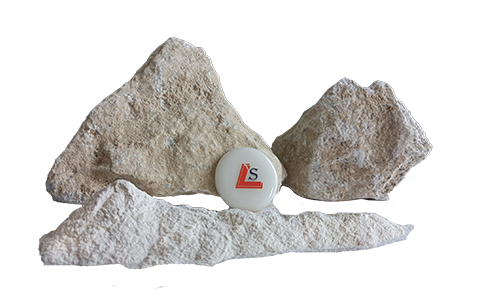
Sodium feldspar has many advantages in the production of ceramics industry. Here is a detailed explanation of these advantages:
Hardness and Wear Resistance: Sodium feldspar is a mineral with high hardness. Therefore, when making ceramic products, it can increase the hardness and wear resistance of the products. This makes ceramic products more durable, less susceptible to abrasion and scratches, thereby extending the product’s lifespan.
Chemical Corrosion Resistance: Sodium feldspar possesses excellent resistance to chemical corrosion, making it an ideal raw material for manufacturing sanitary ware. Sanitary ware needs to withstand long-term erosion from cleansers and chemicals, and sodium feldspar can effectively resist this corrosion, maintaining the quality and luster of the product surface.

Thermal Stability: Sodium feldspar has high thermal stability, meaning it can maintain its structure and performance in high-temperature environments. This allows sodium feldspar to withstand the high-temperature firing process when manufacturing ceramic products, maintaining the shape and quality of the products.
Rich Colors: Sodium feldspar itself can have multiple colors, and it can also achieve a more diverse color selection by doping or adding other pigments. This allows for the creation of diverse product styles when manufacturing daily-use ceramics and decorative ceramics, meeting the needs and preferences of different consumers.
Cost-effectiveness: Compared to some rare minerals or other raw materials, sodium feldspar is relatively economical, giving it a cost advantage in the ceramic industry. By using sodium feldspar as the main raw material, manufacturers can reduce production costs, thereby enhancing the competitiveness of their products.
Good Processing Performance: Sodium feldspar has good plasticity and processability during processing, meeting the requirements of various manufacturing processes. This allows manufacturers to use various processing methods such as extrusion molding, injection molding, etc., to produce ceramic products with complex shapes and structures.
In summary, LS sodium feldspar has many advantages in the production of ceramics, including hardness and wear resistance, chemical corrosion resistance, thermal stability, rich colors, cost-effectiveness, and good processing performance. These advantages make it an important raw material in these industries.

Whether you have questions or you would just like to say hello,Contact us!
Call Anytime:
+86 15837207537Send E-mail:
info@lsakminerals.comAddress:
Anyang City , Henan Province, China.